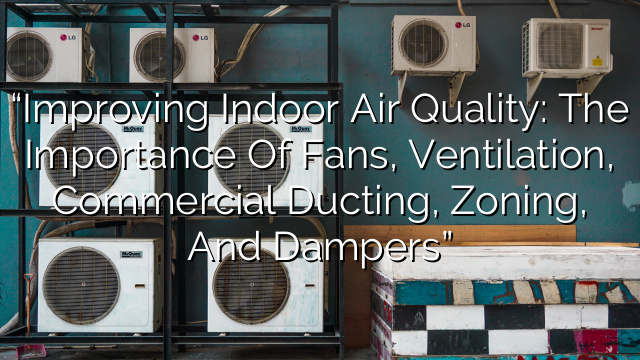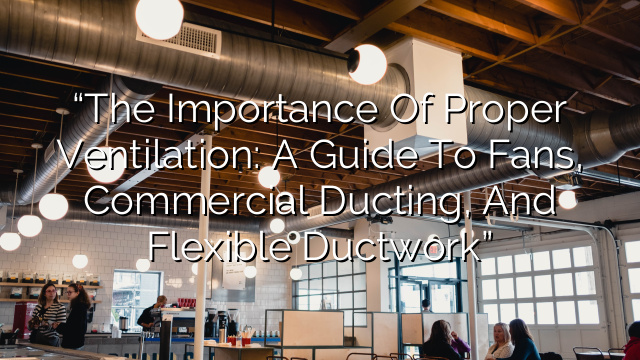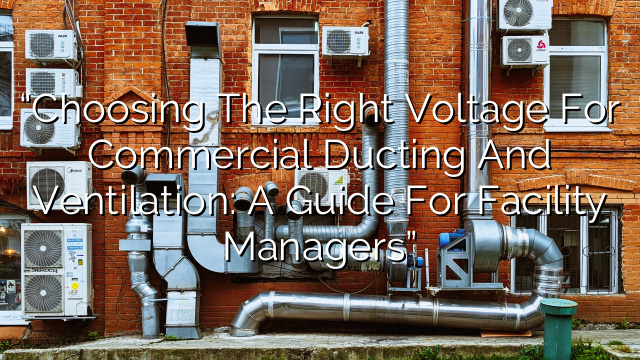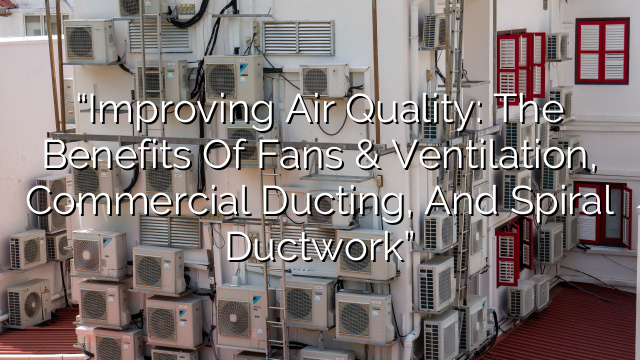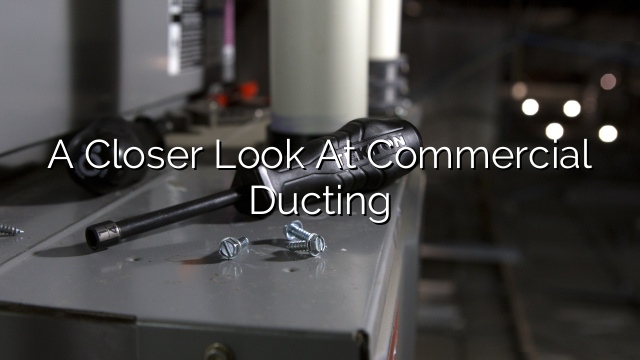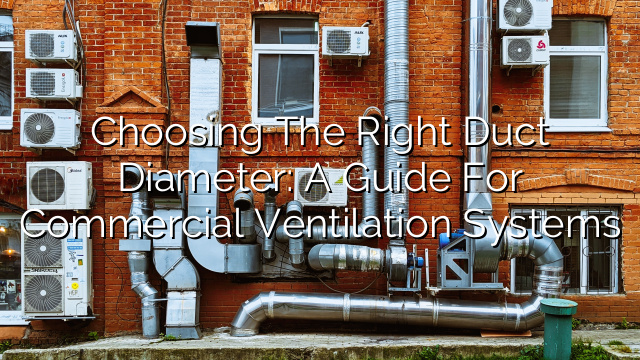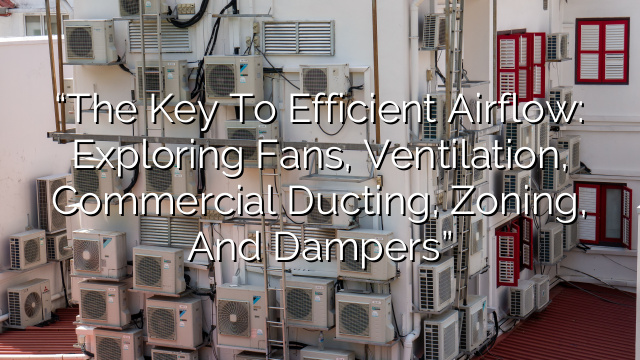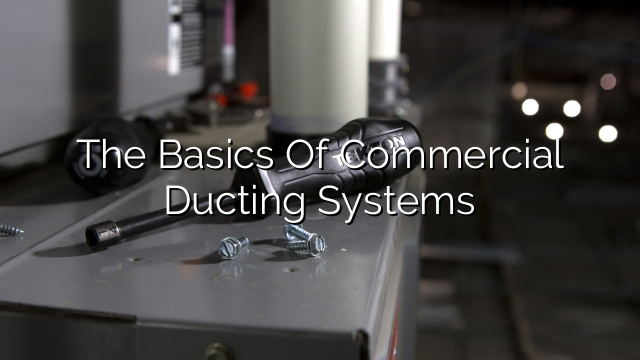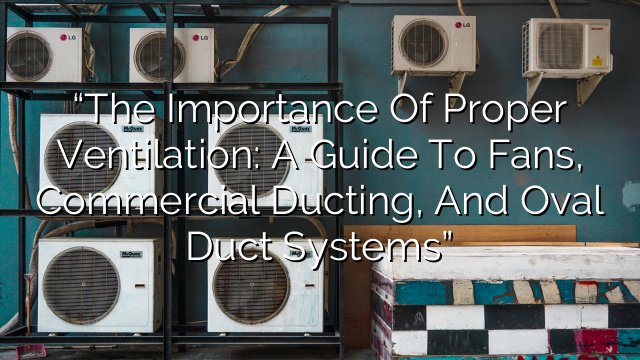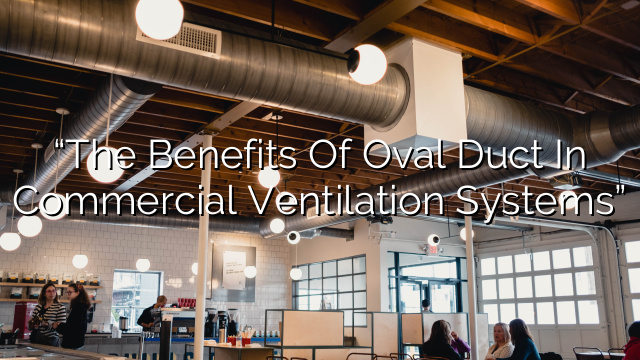The Importance of Fans and Ventilation in Improving Indoor Air Quality
Indoor air quality is an important aspect of building design and maintenance. Poor air quality can have a negative impact on occupant health and comfort. To maintain a healthy indoor environment, it is crucial to have proper ventilation and fans in place. In this article, we will explore the importance of fans, ventilation, commercial ducting, zoning, and dampers in improving indoor air quality.
Why is ventilation important for indoor air quality?
Ventilation is the process of replacing stale indoor air with fresh outdoor air. Inadequate ventilation can lead to a buildup of pollutants indoors, such as volatile organic compounds (VOCs), carbon monoxide, and microbes. These pollutants can cause health problems, including allergies, asthma, and respiratory infections.
Proper ventilation helps remove these pollutants and improve indoor air quality. It also helps control humidity levels, preventing the growth of mold and mildew. Ventilation is especially essential in commercial buildings where people are working in enclosed spaces for long periods.
The role of fans in ventilation
Fans play a crucial role in facilitating the movement of air and maintaining proper ventilation. They help circulate air throughout the building, ensuring a constant supply of fresh outdoor air and removing stale air. Fans can be installed in various locations, such as windows, walls, ceilings, and ducts, depending on the building’s design and requirements.
In commercial buildings, where multiple rooms and levels exist, proper fan installation is necessary to ensure even airflow and ventilation efficiency. Fans can be integrated into a building’s HVAC (heating, ventilation, and air conditioning) system to work in tandem with other ventilation strategies.
Commercial ducting for efficient airflow
Commercial ducting is an integral part of the ventilation system. Ducts carry conditioned air from the HVAC system to different areas of the building. Effective duct design and installation are crucial to ensure proper airflow and distribution of fresh air.
Well-designed commercial ducting should consider factors such as the building layout, the number of occupants, and the location of air supply and return vents. It should also prevent leakage and unnecessary pressure losses. Regular maintenance and cleaning of ducts are vital to prevent the buildup of dust, pollutants, and microbial growth.
Zoning and dampers for targeted ventilation
Zoning is a process of dividing a building into separate areas based on their specific heating and cooling requirements. Zoning allows for targeted ventilation and temperature control in different zones, improving energy efficiency and occupant comfort.
Dampers are mechanical devices used in ducts to control the flow of air. By adjusting dampers, the amount of air supplied to specific zones can be regulated. This helps maintain optimal ventilation levels in different areas of the building, depending on occupancy and usage.
FAQs
- How often should I clean my commercial ducts?
Commercial ducts should be cleaned at least once every 1-2 years, depending on the type of building and its usage. However, if you notice any signs of mold, excessive dust buildup, or poor air quality, it is advisable to have the ducts cleaned immediately.
- Can fans alone improve indoor air quality?
Fans alone cannot improve indoor air quality if there is insufficient ventilation. They can only provide air movement, but without a source of fresh outdoor air, pollutants will not be effectively removed. It is crucial to have proper ventilation systems in place along with fans for optimal indoor air quality.
- What are the benefits of zoning and dampers?
Zoning and dampers offer several benefits, including:
- Energy efficiency by only conditioning occupied zones
- Improved occupant comfort with individual temperature control
- Targeted ventilation in areas with higher pollutant sources
- Reduced HVAC system strain and maintenance costs
- How can I ensure proper ventilation in my commercial building?
To ensure proper ventilation in your commercial building, consider the following:
- Regularly maintain and clean ventilation systems, including fans and ducts
- Monitor and control humidity levels to prevent mold and mildew growth
- Perform indoor air quality testing to identify potential issues
- Work with HVAC professionals to design and install an efficient ventilation system
In conclusion, fans, ventilation, commercial ducting, zoning, and dampers all play critical roles in improving indoor air quality. Proper design, installation, and maintenance of these systems are vital to ensure a healthy and comfortable indoor environment. By investing in effective ventilation strategies, building owners and occupants can enjoy improved air quality, resulting in better health and productivity.

